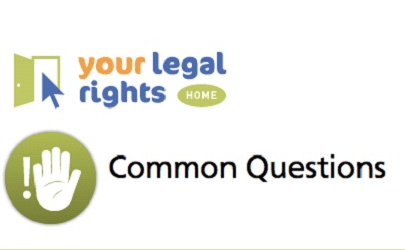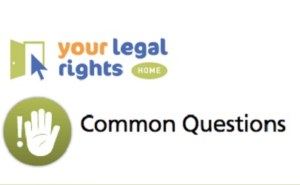CLEO’s Common Questions 1: Domestic Violence and Deportation (Immigration Rules)
Original Source: “Common Questions: My husband has abused me and threatens to have me deported if I report him to the police. Does he have the power to do that?” by Community Legal Education Ontario (CLEO)
http://yourlegalrights.on.ca/common-question/my-husband-has-abused-me-and-threatens-have-me-deported-if-i-report-him

QUESTION:
My husband has abused me and threatens to have me deported if I report him to the police. Does he have the power to do that?
ANSWER:
No. Your spouse or partner might threaten to have you deported from Canada if you report his abusive behaviour. He might say he has this right because he sponsored you. He does not have this right. Only federal immigration authorities make the decision to deport someone.
But there are new rules about sponsorship of a spouse or common-law partner. In most cases, if you have permanent resident status, you cannot lose that status or be removed from Canada only because you have left an abusive relationship. This is true even if your abusive partner is your sponsor. However, if your partner reports to immigration that your relationship was not genuine or that it was fraudulent, immigration officials may conduct an investigation which could result in your permanent residence status being taken away.
The new immigration rules create a “conditional” permanent resident status for some sponsored spouses or partners. Permanent resident status will only be conditional if, when the sponsorship application was made, you and your spouse or partner did not have children in common or your relationship existed for two years or less. In this situation, permanent resident status will be “conditional” for the first two years after your arrival as a sponsored spouse, during which time you are expected to live with your sponsor. This means that permanent resident status is not actually permanent, and that if you separate from your sponsor less than two years after becoming a permanent resident, you will risk losing that status and you might not be allowed to stay in Canada.
However, if you separated because of abuse or neglect by your sponsor or by a member of his family, you can ask for an exception to this rule. You will have to show that the abuse took place and that it led to the breakdown of the relationship. The abuse or neglect might be aimed at you, your child, or a family member who usually lives in your household. You should get legal advice about your situation. For informaton on finding a lawyer visit: I need legal help, but have limited income and can’t afford a lawyer. What can I do?
You need legal advice if you are thinking of leaving your partner or you have already left, and your status is not permanent in Canada. This includes if you have conditional permanent resident status, or if your partner has threatened to report to immigration that your marriage is not genuine. You may be able to apply for permanent resident status on “humanitarian and compassionate” (often called H & C) grounds. The rules on who can apply for status on H & C grounds have recently changed. If you have made a refugee claim that was denied, you cannot make an H & C application for one year from the date of the negative refugee decision. There are exceptions to this one-year rule where a child’s best interests would be affected by your removal from Canada or if your life is at risk due to a lack of medical care in your country.
This can be very complicated and you should see a lawyer. In emergency situations, victims of domestic violence can ask a women’s shelter or community legal clinic for a free two-hour advice consultation with an immigration lawyer. This helps women get free legal advice in emergency situations. For more information visit: http://yourlegalrights.on.ca/find-services/service-topic/abuse-and-family-violence.
Even if you called the police for help, they might contact immigration authorities to ask about your status. The police computer system will show if there is an immigration warrant in your name. An immigration warrant is issued when you do not show up for a hearing or appointment with immigration.
If you have made a claim for refugee protection based on your partner’s fear of persecution, you may have difficulty having your claim accepted if you separate. You should get legal advice from your own lawyer. This is very important because the rules regarding refugee claims recently changed. If you separate, you will need to decide whether to continue with the refugee claim or whether you should make an H & C application. You cannot do both at the same time. If your refugee hearing has already started, you may not be able to withdraw your refugee claim. This means that you may not be able to make an H & C application. The new rules are complicated and you need to get legal advice to help you determine which application is best for your situation.
If immigration authorities have ordered your removal from Canada, you cannot make a refugee claim, but you may be able to apply for a pre-removal risk assessment (PRRA). This is an assessment of the risk you would face if you are sent back to your country.
How your immigration status will be affected if you leave your partner is complicated and beyond the scope of this resource. For more information about refugee law issues, see CLEO’s website, Refugee Rights In Ontario, at www.refugee.cleo.on.ca.
**This article gives general legal information. It is not a substitute for getting legal advice about a particular situation.


